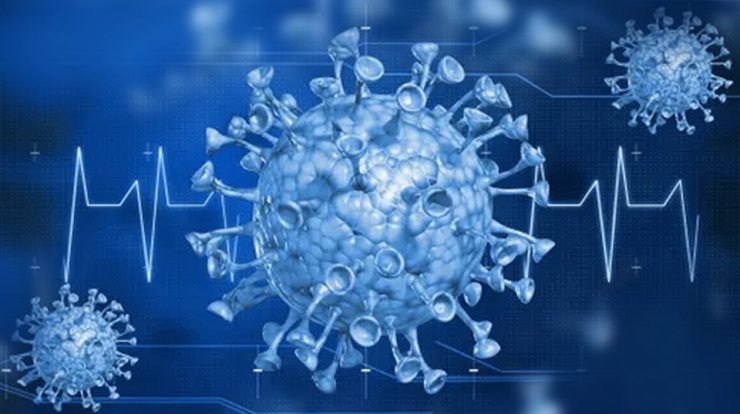
Since COVID-19 made headlines, researchers have been relentlessly working to find medicines and treatments to combat the effect of the viral infection as well as reduce complications and deaths. The ray of hope came in when drugs Chloroquine and hydroxychloroquine specifically used to treat malaria have proved to be effective in treating COVID-19 cases.
While these drugs are widely being used by healthcare practitioners, the side effects of these drugs are far from being ignored. As studies suggest these drugs are known to show peculiar morphological changes in the ECG of the patient knows as elongated QTc. An elongated QTc is associated with a greater risk of cardiac arrhythmia, known as torsades de pointes (TdP), a potentially life-threatening event.

The need for monitoring QTc
An elongated QTc itself raises the eyebrows of healthcare practitioners due to the potential risk of ventricular arrhythmias and even sudden cardiac failure. During such a crisis where a large study to explore the outcomes of treatment scope with Chloroquine and hydroxychloroquine can take months, its ideal to go with the limited knowledge to save lives. In managing the side effects, it’s advisable to monitor susceptible patients to keep safely using these drugs. Starting the medications by getting a baseline ECG to be able to measure changes once the drugs are administered can be helpful.
Why we need contactless digital technology like SanketLife
COVID 19 is equally dangerous to those who suffer from the infection and to those who come in contact with such people. The highest risk-takers are the healthcare practitioners and the assisting staff.
Science and engineering with advanced digital tools can aid the present scenario. With patients undergoing treatment for COVID-19, the contactless medical device holds a solution. Just like an infra-red thermometer which helps in taking temperature without any contact with the patient, ECG device like SanketLife can help in taking ECG with minimal contact.
The device enables remote heart monitoring. Without the need of an ECG technician, the device can take a complete 12 lead ECG and the reports can be digitally sent to doctors for quick interpretation via the mobile application. The precise algorithm has the potential to detect the slightest morphological changes on ECG and display the result.
The device like this can turn any normal smartphone into an important diagnostic tool and can help reduce the problem like lack of ECG device in any facility, time taken for reports to be generated and interpreted, minimal contact with patients and lesser manpower that can be utilized elsewhere in such desperate times
While the whole world is fighting against this biological hazard, the need of such devices that can help in monitoring patient vitals and wellbeing are must. To reduce casualties and take care of the lack of resources the government should immediately tie up with such companies that have innovations like these that are ideal to fit in such scenarios.
Sources
- Xueting Yao, Fei Ye, Miao Zhang, Cheng Cui, Baoying Huang, Peihua Niu, Xu Liu, Li Zhao, Erdan Dong, Chunli Song, Siyan Zhan, Roujian Lu, Haiyan Li, Wenjie Tan, Dongyang Liu, In Vitro Antiviral Activity and Projection of Optimized Dosing Design of Hydroxychloroquine for the Treatment of Severe Acute Respiratory Syndrome Coronavirus 2 (SARS-CoV-2), Clinical Infectious Diseases, , ciaa237, https://doi.org/10.1093/cid/ciaa237
- Wang M, Cao R, Zhang L, Yang X, Liu J, Xu M, Shi Z, Hu Z, Zhong W, Xiao G. Remdesivir and chloroquine effectively inhibit the recently emerged novel coronavirus (2019-nCoV) in vitro. Cell Res. 2020 Mar;30(3):269-271. doi: 10.1038/s41422-020-0282-0. Epub 2020 Feb 4. PMID: 32020029; PMCID: PMC7054408.
- Gautret P, Lagier J, Parola P, Hoang V, Meddeb L, Mailhe M, Doudier B, Courjon J, Giordanengo V, Vieira V, Dupont H, Honoré S, Colson P, Chabrière E, La Scola B, Rolain J, Brouqui P, Raoult D. Hydroxychloroquine and azithromycin as a treatment of COVID-19: results of an open-label non-randomized clinical trial. International Journal of Antimicrobial Agents. 2020;:105949.
- Nachimuthu S, Assar MD, Schussler JM. Drug-induced QT interval prolongation: mechanisms and clinical management. Ther Adv Drug Saf. 2012 Oct;3(5):241-53. doi: 10.1177/2042098612454283. PMID: 25083239; PMCID: PMC4110870.
Visit www.sanketlife.in for more information

This is good stuff, its cool to be in the know.
Hey, thanks for sharing I always look forward to reading your posts one of the few blogs I still follow!
I absolutely need to frequent this site much more often, information like this is hard to come by.
Resources just like the one you pointed out here is going to be very beneficial to me personally! I will certainly post a website link to this page on my personal website. I am certain my site visitors will find that very useful.
I really enjoy this template youve got going on on your site. What is the name of the theme by the way? I was thinking of using this style for the web site I am going to make for my school project.
I guess you have made some really interesting points. Not too many ppl would really think about this the direction you just did. I am really impressed that there is so much about this subject that has been revealed and you made it so nicely, with so considerably class. Brilliant one, man! Truly great things right here.
Completely perceive what your stance on this matter. Although I might disagree on some of the finer particulars, I believe you probably did an awesome job explaining it. Positive beats having to research it on my own. Thanks. Anyway, in my language, there are usually not much good source like this.
Thank you for another great article. just wanted to throw you a big thanks – you and I’ll bookmark it and come back later
Please, can you Mail me and tell me few more thinks about this, I am really fan of your bloggets solved properly asap.
A small number typical people wont be freezing in a stadium parking lot all night long.